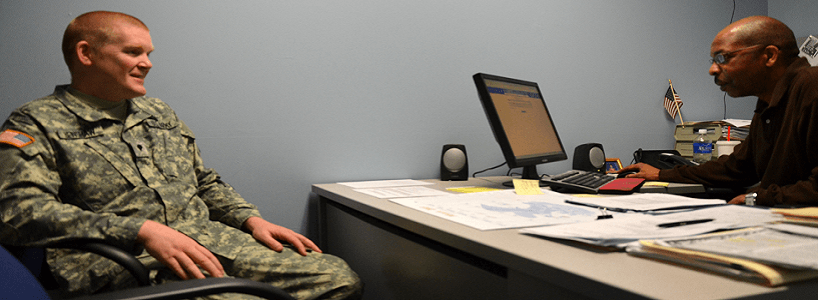The military transition is a much-discussed topic, especially in the D.C. area. The focus of the discussion is usually the transition into the private sector, but what about those who decide civilian life isn’t for them? “Stanley” first enlisted in the Army National Guard at 18, then after a time in the civilian workforce, joined the Air National Guard, and is currently serving on active duty. He explains why the private sector wasn’t for him, and why he wanted to go on active duty.
What made you want to enlist in the Army National Guard?
My father was in the Army, so I guess there’s a family aspect to it. Then when I got into high school, what made me want to enlist was the fact that I had two friends who went in on the buddy system where you were still in high school and after 11th grade you did basic training during the summer and after 12th grade you went to your tech school. One of my friends’ dads was a recruiter and he was glad to get my process started.
How did you go from the Guard to active duty?
Initially when I went in, I was in the Army National Guard for about 7 years, then I switched over to the Air National Guard, and I didn’t get a taste of active duty until about 2006 when I went to do the border patrol mission. The best-kept secret of the Guard is that there’s a headquarters staffed by all active duty guardsmen, and I got assigned there [author’s note: the best kept secret until now]. After I came home, I stayed on active duty backfilling a position at Joint Base Anacostia-Bolling. I’ve been on active duty since 2009.
What are the biggest benefits of active duty?
First of all, you have a steady and secure job. Then there are the benefits like housing allowances, the uniform stipend, the money for education, the commissary, the PX. When my wife first moved to the U.S., it was hard for her to get a job or a credit card with no credit history. She was able to get a credit card being an active duty spouse and thus start a credit history in the U.S., and then she got approved for way too many.
What was your experience like in the civilian sector? Why do you want to stay in the military?
I think there are several reasons for me to stay. There’s a huge sense of satisfaction; I’ve had people buy me lunch as a way of thanking me. It feels really good to know my job matters to people. When you get in, the reasons to stay vary. When you’re in the Guard, you get the flexibility of the civilian world, but you’re still subject to the uncertainty of the private sector. I remember bouncing around from job to job, but the Guard was always there like an island of calm. I went on active duty because of the job security and stability it offers. I stay because I’ve been in the military for about 30 years. I like it, and what else am I going to do? The travel is just fantastic, I met my wife overseas and I got to visit places I never thought I would see. There’s a huge benefit especially for guys from the inner city. You get to see places and meet people you couldn’t even imagine. You never know when that person you thought is your enemy saves your life, literally, or does something to help your job and keep your career.
What advice would you give to service members who are on the fence about reenlisting?
I’d say stick it out, do the 20 years and get your retirement. Then at the end of the day you have a great experience to look back on and a first class retirement plan. You can’t beat the benefits you see in the military. Just looking at the monthly statement of benefits, I can see just how much the military is spending on me and it’s incredible. Then when you do eventually go civilian, you have the security of your retirement to help you get settled in the private sector.
What is your experience? Post a comment about your transition into or out of the service.



